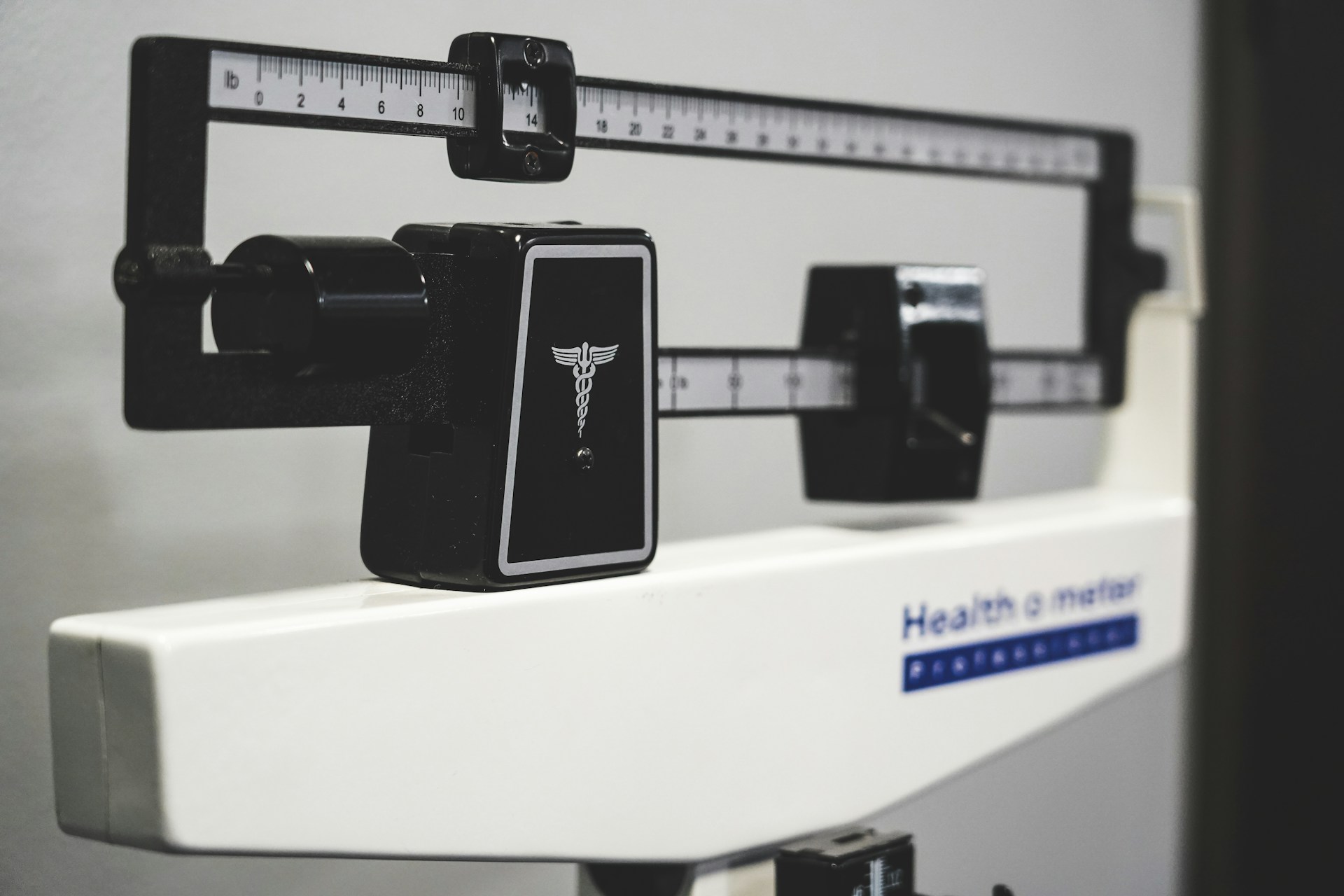Duodenal Switch vs Gastric Bypass: Pros and Cons Explained
The journey to overcome severe obesity is often deeply personal, starting with a moment of truth. After years of struggling with weight and health issues like Type 2 diabetes and high blood pressure, many come to the realisation that a more severe intervention will be needed, and they often decide on bariatric surgery. When considering bariatric surgery, many patients ask: duodenal switch vs gastric bypass, what are the real pros and cons?
This scenario is common for many patients. Both procedures are highly effective for long-term weight loss and resolving related health problems. But the choice is a critical trade-off between balancing a procedure's profound weight loss benefits against its potential risks and lifelong demands. Understanding the Duodenal Switch (DS) vs Gastric Bypass (RYGB) pros and cons is the first, vital step toward reclaiming your health.
Understanding Duodenal Switch vs Gastric Bypass
Both the DS and the RYGB combine a restrictive element (limit food intake) and a malabsorptive element (reduce calorie absorption). However, how they achieve these outcomes differs greatly.
How Does the Gastric Bypass Work?
The RYGB is considered the gold standard of bariatric surgery because its safety and efficacy are well-established and documented for decades.
The procedure starts with a surgeon creating a small pouch at the top of the stomach, which can hold only about one ounce of food. The small intestine is then rerouted to connect with this pouch, forming a Y-shaped pathway.
This anatomic change works in two ways:
- It restricts the amount of food that can be eaten, leading to early fullness.
- It affects gut hormones, which means reducing hunger and improving blood sugar control.
Patients often see significant improvements in Type 2 diabetes shortly after surgery, before major weight loss occurs.
What needs to be pointed out is that after gastric bypass, patients may experience “dumping syndrome.” This happens when high-sugar or high-fat foods move too quickly into the intestine, causing nausea, sweating, and diarrhea. While unpleasant, some patients find it helps them avoid unhealthy eating.
How Duodenal Switch Works
The Duodenal Switch is a more complex, two-part procedure that is uniquely effective for patients with a very high body mass index (BMI).
The surgeon performs a sleeve gastrectomy, removing about 80% of the stomach, which limits food intake.
A radical intestinal bypass is created. The food and the digestive juices (bile and enzymes) are kept separate for a significant length of the small intestine, only mixing in a very short segment called the "common channel" where absorption occurs.
With DS, food exits the stomach in a more controlled way, which results in avoiding dumping syndrome. DS also triggers profound hormonal changes that improve satiety and blood sugar regulation. Because of these mechanisms, it leads to bigger long-term weight loss and significant improvements in metabolic health.
Comparing Duodenal Switch vs Gastric Bypass Pros and Cons
Most of the time, the decision comes down to balancing the superior efficacy of the DS against its higher risk and greater long-term daily demands.
Weight Loss and Metabolic Benefits
When comparing duodenal switch vs gastric bypass, the differences in long-term weight loss are significant. Studies following patients for ten years show that DS leads to greater and more sustained results. On average, patients lose about 34% of their total body weight with DS, compared to around 20% with gastric bypass. This makes DS especially effective for patients with very high BMIs, over 50, because it produces better outcomes and a lower risk of long-term weight regain.
Both surgeries improve obesity-related conditions like diabetes, high cholesterol, and sleep apnea. While gastric bypass provides excellent results, DS appears to offer more powerful improvements in metabolic health, particularly cholesterol and triglyceride levels. Some studies also suggest that DS patients are less likely to relapse into diabetes years after surgery compared to gastric bypass patients.
Surgical Risks and Complications
While DS is more effective for weight loss, it does carry a greater risk. The surgery itself takes longer and requires a longer hospital stay. It also has a higher rate of complications down the line, with patients experiencing more adverse events and were more likely to need additional surgeries than gastric bypass patients.
Gastric bypass, by contrast, has a safer risk profile. It is still a major surgery with possible complications, but its track record over decades makes it one of the most reliable bariatric procedures.
In simple terms, gastric bypass offers a balance between effectiveness and safety, while DS offers maximum weight loss at the cost of higher risk.
Nutritional Challenges and Lifestyle Changes
Nutrition is one of the most important differences when weighing the pros and cons of these surgeries. Both require patients to take daily vitamins and supplements for life. But the demands after DS are far greater.
Because DS limits nutrient absorption so drastically, patients are at risk of deficiencies in vitamins A, D, E, and K, as well as iron, protein, and calcium. Without strict adherence to supplements and regular blood tests, these deficiencies can cause serious health problems, such as anemia, bone loss, and even life-threatening protein malnutrition.
Gastric bypass patients also need supplements (typically that includes B12, iron, calcium, and folate) but their risks of severe deficiencies are generally lower.
Gastrointestinal Side Effects
The side effects patients experience also differ. Gastric bypass patients may struggle with dumping syndrome when they eat too much sugar. For many, this acts as a built-in reminder to avoid unhealthy foods.
Duodenal switch patients rarely experience dumping syndrome, but they often face another challenge: frequent, foul-smelling stools, diarrhea, and gas. Some patients report needing to use the bathroom up to 10–20 times a day. These symptoms can usually be managed with dietary changes, but for some, they remain a difficult part of daily life.
Quality of Life and Patient Experience
Despite these differences, studies suggest that the quality of life after both surgeries improves dramatically. Patients often report that they can move better, travel comfortably, and enjoy activities that once seemed impossible. Interestingly, even though DS leads to greater weight loss, long-term studies show that quality of life scores are similar between DS and gastric bypass patients.
This suggests that while DS patients lose more weight, the higher burden of nutritional management and side effects may balance out the advantages. Both groups, however, typically experience life-changing improvements in health, confidence, and daily comfort.
Making the Decision
The ultimate choice is not just about numbers; it's about your willingness to manage risk and commitment.
When weighing duodenal switch vs gastric bypass pros and cons, the decision depends on your BMI, health conditions, and willingness to commit to lifelong nutrition management. The duodenal switch is usually reserved for patients with the highest BMIs or those with severe metabolic disease. It is the most powerful option, but it requires a strong commitment to lifelong supplementation and follow-up.
The gastric bypass is appropriate for a broader group of patients. It offers excellent weight loss, strong improvements in obesity-related conditions, and a safer long-term profile. For many patients, it represents the best balance of effectiveness and safety.
FAQ
Which is better: Duodenal Switch or Gastric Bypass?
Neither surgery is universally “better”, it all depends on your health profile. The duodenal switch usually leads to bigger long-term weight loss and stronger improvements in cholesterol and diabetes control. But it carries higher surgical risks and requires strict lifelong supplementation. Gastric bypass provides a safer option with less risk, making it a good option for a broader group of patients.
Can you regain weight after Gastric Bypass or Duodenal Switch?
Yes, weight regain is possible after both procedures. However, studies show that duodenal switch patients are less likely to regain significant weight compared to gastric bypass patients, particularly in the long term.
Who should choose Duodenal Switch over Gastric Bypass?
Duodenal switch is typically recommended for patients with very high BMIs (≥50) or severe metabolic conditions such as uncontrolled Type 2 diabetes. Gastric bypass is better suited for patients with lower BMIs who still need substantial weight loss but prefer a safer risk profile and less demanding nutritional management.
{{cta_ba}}








